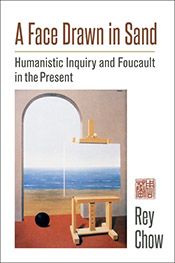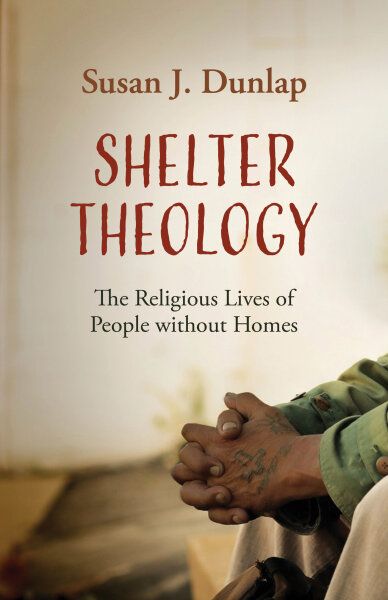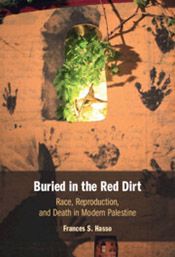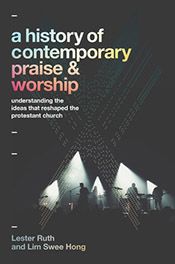
From China to modern Palestine, from Renaissance Europe to Reagan’s America of the 1980s, new books by Duke faculty will take you on a fascinating journey through time and space. We present a selection of books published in late 2021.
Many of the books, including new editions of previous titles, can be found on the “Duke Authors” display shelves near the circulation desk in Perkins Library. Some are available as e-books for quick download. Most can also be purchased through the Gothic Bookshop.
[Duke Today will provide January and February books next month. If you are a member of the Duke faculty or staff who will be publishing a book of interest to a general audience, send us a message about it along with your publisher's brief description.]
 Rey Chow: A Face Drawn in Sand: Humanistic Inquiry and Foucault in the Present (Columbia University Press)
Rey Chow: A Face Drawn in Sand: Humanistic Inquiry and Foucault in the Present (Columbia University Press)
The Andrew W. Mellon Distinguished Professor of the Humanities, Rey Chow uses the work of Michel Foucault to unravel the dead ends and potentialities of humanistic inquiry in the contemporary Western university. Chow stresses anew the intellectual and pedagogical objectives fundamental to the humanities: how to analyze texts across languages and disciplines, how to form and sustain viable arguments, and how to rethink familiar problems.
 Susan J. Dunlap: Shelter Theology: The Religious Lives of People without Homes (Fortress Press)
Susan J. Dunlap: Shelter Theology: The Religious Lives of People without Homes (Fortress Press)
Susan Dunlap teaches the art of pastoral care at Duke Divinity School and serves as the chaplain at Urban Ministries of Durham. Dunlap observed the “practical theology” expressed by shelter residents in extreme poverty and wanted to give it full due in a book. As she told the Washington Post: “I wanted to develop a respect for theological worlds that have emerged out of suffering and persist because they continue to mediate the love and mercy and power of God.”
 Owen Flanagan: How to Do Things with Emotions: The Morality of Anger and Shame Across Cultures (Princeton University Press)
Owen Flanagan: How to Do Things with Emotions: The Morality of Anger and Shame Across Cultures (Princeton University Press)
Through comparative insights from anthropology, psychology, and cross-cultural philosophy, Owen Flanagan gives us an expansive look at how culture shapes our emotions – and how we can benefit, as individuals and a society, from less anger and more shame. Flanagan is the James B. Duke Distinguished Professor of Philosophy and also holds an appointment in Psychology and Neuroscience.
Alex Harris: Our Strange New Land (Yoffy Press)
Alex Harris, professor emeritus and a founder of the Center for Documentary Studies, chose to examine the rapidly evolving world of independent fiction filmmaking in this book of photographs, commissioned by the High Museum in Atlanta as part of its Picturing the South series. Made on over 40 film sets throughout the region, Harris’s photographs provide a glimpse of life in the American South with all its complexities and reveal a new generation of filmmakers coming to terms with matters of race, class, and sexuality.
 Frances Hasso: Buried in the Red Dirt: Race, Reproduction, and Death in Modern Palestine (Cambridge University Press)
Frances Hasso: Buried in the Red Dirt: Race, Reproduction, and Death in Modern Palestine (Cambridge University Press)
Bringing together a vivid array of sources, including colonial archives, newspaper reports, literature, oral histories and interviews, Frances Hasso tells a story of life, death, and reproduction, and missing bodies and experiences, during and since the British colonial period in Palestine. Hasso is a professor in the Program in Gender, Sexuality and Feminist Studies with secondary appointments in the Departments of History and Sociology.
Simon Miles, co-editor: “The Reagan Moment: America and the World in the 1980s” (Cornell University Press)
Simon Miles and his co-editor Jonathan R. Hunt bring together a cohort of scholars with fresh insights from untapped and declassified global sources to recast Reagan's pivotal years in power and place U.S. foreign relations into a global context. Miles is an assistant professor in the Sanford School of Public Policy and the author of Engaging the Evil Empire.
 Richard J. Powell: Black Art: A Cultural History. Third Edition (Thames & Hudson)
Richard J. Powell: Black Art: A Cultural History. Third Edition (Thames & Hudson)
The new edition of this groundbreaking study explores the visual representations of Black culture across the globe throughout the 20th century and into the 21st. The book presents Black art drawn from across the African diaspora and features artworks in a broad range of media, including film, photography, performance art, and sculpture. Richard J. Powell is the John Spencer Bassett Professor of Art & Art History.
 Dale Purves: Why Brains Don't Compute (Springer)
Dale Purves: Why Brains Don't Compute (Springer)
In his new book, Dale Purves examines what seems to be the basic challenge in neuroscience today: understanding how experience generated by the human brain is related to the physical world we live in. He presents the argument and evidence that brains address this problem on a wholly trial and error basis. Purves is the George B. Geller Professor of Neurobiology Emeritus.
Maureen Quilligan: When Women Ruled the World: Making the Renaissance in Europe (Liveright)
In this revisionist history, a scholar of the Renaissance shows how four powerful women — Mary Tudor; Elizabeth I; Mary, Queen of Scots; and Catherine de’ Medici — redefined the culture of European monarchy in the 16th century. Maureen Quilligan is the R. Florence Brinkley Distinguished Professor Emerita of English.
Alex Roland: Delta of Power: The Military-Industrial Complex (Johns Hopkins University Press)
Roland, who has taught military history and the history of technology, now tells the comprehensive history of the military-industrial complex (MIC), from 1961, the Cold War, and the War on Terror, to the present day. Roland, a professor emeritus of history, argues that the MIC is now significantly different than it was when Eisenhower warned of its dangers, still exerting a significant but diminished influence in American life.
 Lester Ruth, co-author: A History of Contemporary Praise & Worship: Understanding the Ideas That Reshaped the Protestant Church (Baker Academic)
Lester Ruth, co-author: A History of Contemporary Praise & Worship: Understanding the Ideas That Reshaped the Protestant Church (Baker Academic)
New forms of worship have transformed the face of the American church over the past 50 years. This volume by two worship experts draws on primary sources and interviews to offer the first comprehensive history of contemporary praise and worship and its impact. Lester Ruth is a historian of Christian worship at Duke Divinity School.
Anna Sun, co-editor: Situating Spirituality: Contemporary Spiritual Practice in Global Context (Oxford University Press)
While levels of religious belief and observance are declining in much of the Western world, the number of people who identify as "spiritual but not religious" is on the rise, and practices such as yoga, meditation, and pilgrimage are surging in popularity. Anna Sun, associate professor of religious studies, and co-editors have collected essays that show how seemingly personal facets of spirituality are shaped by religious, cultural and political contexts.
Paul P. Wang, co-author: The Scientification of China (Cambridge Scholars Publishing)
This book investigates scientific Chinese words, language and culture and how they have contributed toward the evolution of Chinese civilization and the development of the digital economy. The late Paul P. Wang was professor emeritus of the Pratt School of Engineering and a pioneer in artificial intelligence. He died in 2021 after serving on the Duke faculty for nearly four decades.
Sarah Wilbur: Funding Bodies: Five Decades of Dance Making at the National Endowment for the Arts (Wesleyan University Press)
Wilbur, an assistant professor of the practice of dance at Duke, examines how NEA funding policies have shaped the field of dance. Drawing on archival documents as well as testimony from past and present insiders, this institutional history brings clarity to the complex processes that underlie the continuing struggle to achieve equitable resource distribution and parity of opportunity in American dance. A free e-copy is available through Duke University Libraries.